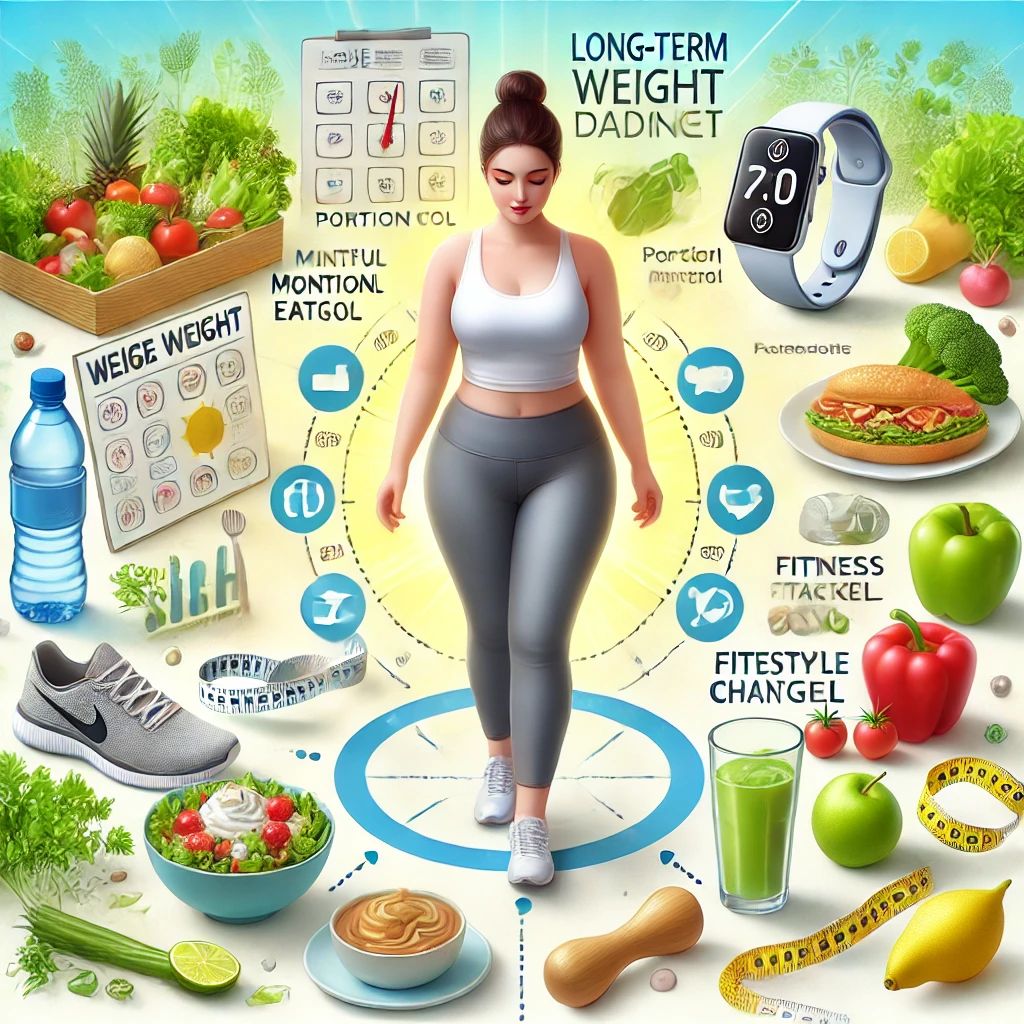
Is It Possible to Lose Weight Without Dieting?
Yes, it’s possible to lose weight without following a strict diet. Weight loss doesn’t have to be about restrictive eating or cutting out entire food groups. Instead, you can achieve sustainable weight loss by making small but impactful lifestyle changes. These changes focus on improving your relationship with food, staying active, and creating healthy habits that support long-term weight management.
Why Dieting Often Fails
Strict diets often lead to short-term success but are difficult to maintain in the long run. Many diets focus on deprivation, which can lead to overeating once the diet ends. Additionally, restrictive eating can cause nutritional deficiencies and slow down your metabolism. Instead of dieting, adopting healthy habits can create lasting changes without feeling deprived or restricted.
Practical Ways to Lose Weight Without Dieting
Here are some effective strategies to help you lose weight and improve your overall health without the need for a rigid diet plan:
1. Practice Mindful Eating
Mindful eating encourages you to pay attention to what, when, and how you eat. It helps you become more aware of your body’s hunger and fullness cues, reducing overeating and emotional eating:
Eat slowly: Take time to chew your food and savor each bite. Eating slowly helps your brain register fullness, preventing overeating.Avoid distractions: When eating, focus on your meal without distractions like watching TV or scrolling through your phone. This makes it easier to recognize when you’re full.Listen to your body: Stop eating when you feel satisfied, not stuffed. Learning to recognize hunger and fullness cues helps prevent mindless snacking and overeating.2. Stay Active Throughout the Day
Exercise is a key component of weight management, but you don’t have to spend hours in the gym to see results. Incorporating more movement into your daily routine can make a big difference:
Take regular walks: Walking is a simple and effective way to burn calories and improve cardiovascular health. Aim for at least 30 minutes of walking each day.Use the stairs: Opt for stairs instead of elevators whenever possible to add more movement to your day.Stand and stretch: If you have a desk job, take breaks to stand up, stretch, and move around. This helps increase your activity level and reduce sedentary behavior.3. Focus on Nutrient-Dense Foods
Rather than cutting out specific foods, focus on adding more nutrient-rich options to your meals. These foods provide the vitamins and minerals your body needs to function optimally:
Eat more fruits and vegetables: These low-calorie, high-fiber foods help fill you up and provide essential nutrients.Incorporate lean proteins: Protein helps build muscle, boosts metabolism, and keeps you feeling full. Include sources like chicken, fish, eggs, and legumes in your meals.Choose whole grains: Replace refined grains with whole grains like quinoa, brown rice, and oats. Whole grains are more filling and provide sustained energy throughout the day.4. Hydrate and Limit Liquid Calories
What you drink can have a big impact on your weight. Sugary beverages, high-calorie coffees, and alcohol can contribute to weight gain without providing nutritional benefits:
Drink more water: Staying hydrated helps regulate your metabolism and can reduce hunger. Aim to drink water throughout the day, especially before meals.Cut out sugary drinks: Replace sugary sodas, juices, and energy drinks with water, herbal teas, or sparkling water. This simple swap can save you hundreds of calories per day.Limit alcohol: Alcoholic drinks are often high in empty calories. Reducing your alcohol intake can make a significant difference in your calorie consumption.5. Get Enough Sleep
Sleep plays a crucial role in weight management. Poor sleep disrupts hormones that regulate hunger and appetite, making it harder to lose weight:
Aim for 7-9 hours of sleep per night: Prioritize quality sleep to support your metabolism and reduce cravings for high-calorie foods.Create a bedtime routine: Establish a relaxing bedtime routine to improve the quality of your sleep. This could include reading, meditating, or limiting screen time before bed.Manage stress: Chronic stress can interfere with sleep and lead to emotional eating. Practice stress-reduction techniques like yoga, deep breathing, or mindfulness.6. Practice Portion Control
You don’t have to give up your favorite foods to lose weight—just focus on controlling portion sizes:
Use smaller plates: Eating from a smaller plate can make your portions look larger, helping you feel satisfied with less food.Pre-portion snacks: Instead of eating directly from the bag, portion out snacks like nuts, chips, or fruit into smaller servings to avoid overeating.Balance your plate: Aim for a balanced meal with a variety of nutrients—half your plate should be vegetables, one-quarter lean protein, and one-quarter whole grains or healthy fats.7. Stay Consistent with Healthy Habits
The key to long-term weight loss without dieting is consistency. By focusing on sustainable habits, you’ll see gradual changes that are easier to maintain over time:
Make small changes: Start by incorporating one or two healthy habits at a time. This makes it easier to stick with your new lifestyle without feeling overwhelmed.Be patient: Healthy, sustainable weight loss takes time. Focus on progress, not perfection, and celebrate small victories along the way.Stay motivated: Keep track of your progress and remind yourself of the benefits of a healthier lifestyle, such as improved energy, mood, and overall well-being.Conclusion: Sustainable Weight Loss Without Dieting
Losing weight doesn’t have to mean following a strict diet or feeling deprived. By making small, sustainable changes to your eating habits, physical activity, and lifestyle, you can achieve long-term weight loss without the need for dieting. Focus on mindful eating, staying active, and nourishing your body with wholesome foods to create lasting, positive results.
The article was prepared by Ira Levovich.



